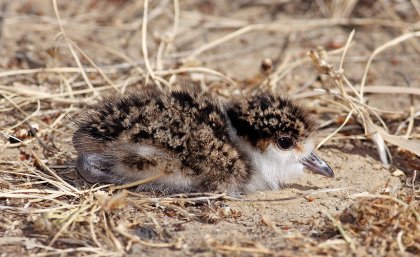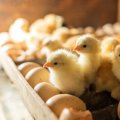
Well-meaning people could do more harm than good by ‘rescuing’ baby birds they find on the ground, warn University of Queensland veterinarians.
UQ School of Veterinary Science experts say that – as difficult as it may be – resisting the urge to save a baby bird found on the ground is often the best thing you can do.
Associate Professor Bob Doneley of the UQ VETS Small Animal Hospital said summer storms often blow trees and branches down, unceremoniously dumping baby birds in their nests on the ground.
“If you find a fallen nest, the best thing to do is put it back in a nearby tree or shrub so the baby birds are out of harm’s way and the parents can find their offspring,” Dr Doneley said.
“Sometimes baby birds land on the ground while they’re learning to fly, so in these situations just observe the bird for a short time to see if its parents return to feed it.
“If the bird is alone, injured or in danger from cats, dogs or road traffic, then take it to a vet or call a wildlife carer to look after it.
“They’ll need to know exactly where you found the bird so they can release it in this spot later on.”
Associate Professor Doneley said well-intentioned people sometimes removed the chicks of ground-dwelling birds such as masked lapwings (plovers), as they considered them abandoned.
“The parents are coming back to their chicks, so please leave them where you found them,” he said.
Wildlife work is not paid for by the government, so if you find injured wildlife please consider leaving a donation for the care organisation or the Wildlife and Emergency Care Fund.
“We are always grateful for donations to care for our native animals,” Dr Doneley said.
The UQ VETS Small Animal Hospital sees about 1000 wildlife cases a year, providing education opportunities for veterinary students in the process.
Media: Associate Professor Bob Doneley, r.doneley@uq.edu.au, +61 7 5460 1788.
.jpg)











